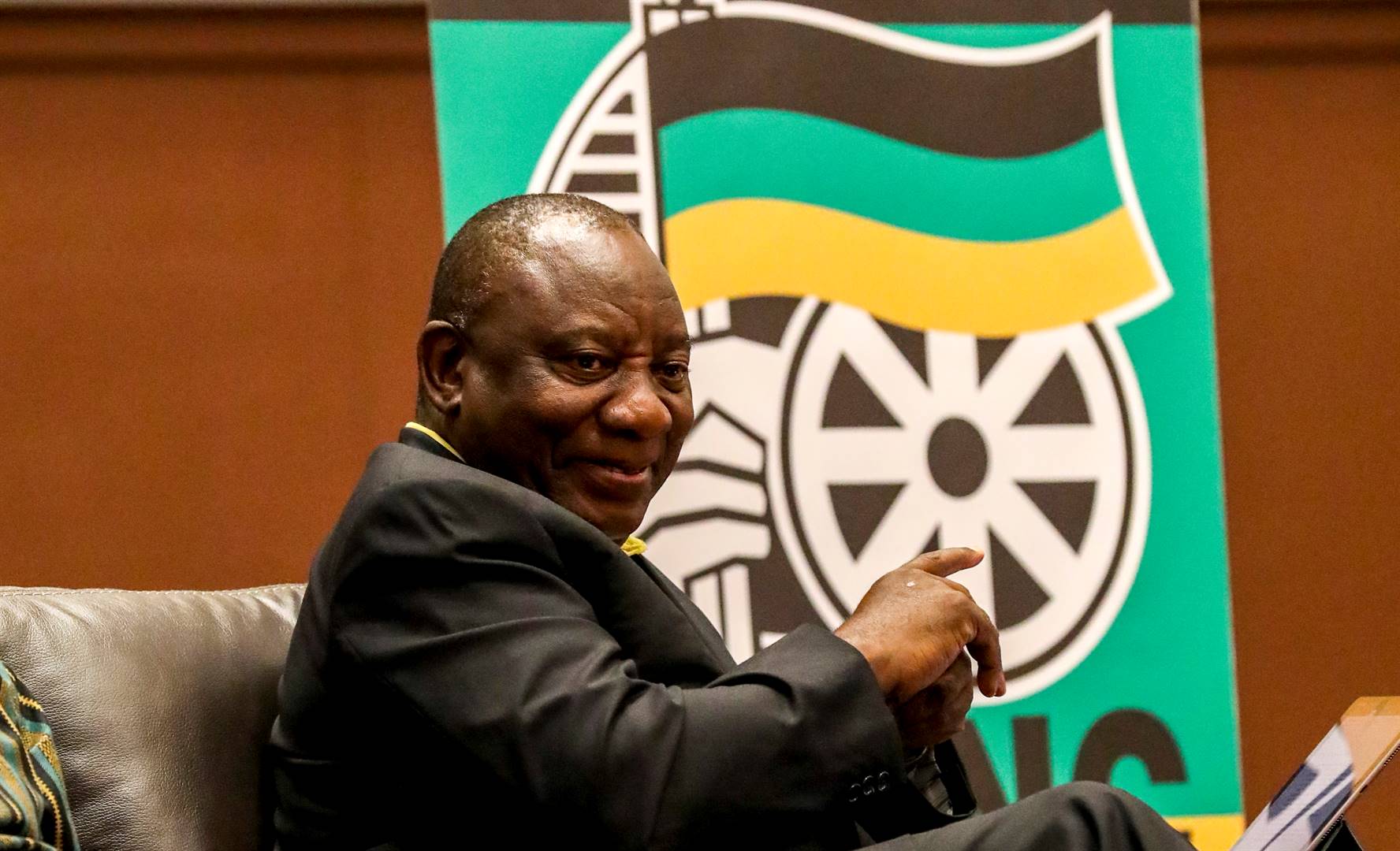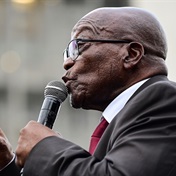
Dear President Ramaphosa,
Please forgive me for disrupting your extremely busy schedule to discuss this inconvenient issue.
My apology is even more pronounced on account of the fact that I raise this matter while you have made a clarion call for all members and supporters of the movement to rally South Africans behind the vision of growing South Africa together.
Delaying writing this was an option available to me but I was reminded of the fact that, in consultation with the officials, you will soon have the unenviable responsibility of selecting a national executive for the country.
Beyond this, over the next five years you will be expected to form various committees, task teams and boards in a bid to deliver on the promises of the national democratic revolution.
President, I wish to draw your attention to the briefing you had on September 20 last year, pertaining to the stimulus package.
On that day, you were flanked by a squad of elderly men who are part of your Cabinet.
It’s a picture that still haunts me to this day and it was probably the most potent indicator of the state of gender and age relations in the congress movement that you lead.
After being confused and troubled at what I was seeing on my screen, I quickly realised that this was a group of ministers within your economic cluster.
Instead of this realisation giving me a degree of peace, this troubled me even more, Mongameli.
How is it that a cluster which is meant to collectively lead society towards youth and women inclusion in the economy has neither a young person nor a woman in its ranks?
Part of this is tantamount to entrusting the wolves to guard cattle.
Since we know that gender relations are power relations and are grossly expressed in economic relations, is it possible for a group that is exclusively men (who are both perpetrators and beneficiaries of patriarchy) to lead economic changes that benefit women?
I also looked at other clusters and I was equally troubled by the fact that while women and the young bear the brunt of violent crimes that are fuelled by hyper-masculinity, they have very little representation in the security and justice cluster as another example.
Although these clusters are not official structures, they are, however, an amalgamation of executive leadership and decision-making relating to their area of responsibilities.
The asymmetrical representation of women and youth in these clusters relegates both groups to appendices in the affairs of the state and of the country, and are a reminder that ageism and sexism in the movement and the country did not collapse with the collapse of apartheid.
This reality is both an insult and an unambiguous vote of no confidence on both women and young people in the congress movement.
Looking ahead to the upcoming sixth Parliament and now that the lists of candidates for provincial and national legislatures have been announced, I must appreciate the effort that seems to have been made to include women and young people by the ANC’s national executive committee that you lead.
This does give a glimmer of hope.
Fortunately, I know many of them and I have no doubt in the wisdom of the ANC in selecting them.
However, although the progress is appreciated, this is still a far cry from where we should be considering that we are a country whose majority of the population is made up of the youth and women.
It is important to state that the outcome of the list process is a reminder that as a movement we need to deal with the deeply rooted and cancerous pathologies of ageism and patriarchy within our ranks. We can no longer pretend that these problems does not exist.
Combined, these twin challenges continue to rob our movement of highly talented and well trained young and/or women comrades that could aid the development of our country and the movement.
I can spend time analysing the anatomy of these organisational ailments, discussing how it manifests and how we continuously safeguard and encourage them as a movement, but that is not the purpose of my letter.
Instead, I want to use this opportunity to challenge you to act against them.
Mr President, you currently preside over and chair a Cabinet that has 0% youth representation.
Only about 5% of the Cabinet is under the age of 45 years.
Yet in contrast, we have close to 50% of Cabinet members being above the official South African retirement age of 60 and over 80% of the Cabinet is over the age of 55 years.
This makes the average Cabinet age 58 – in a country whose population is over 60% youth.
The average age for deputy ministers is about the same and equally uninspiring considering that this is a great platform to groom potential ministerial successors.
Surely these realities do bother you, Mr President, and having had the opportunity to lead the workers at the scale that you did at a very young age, I am sure you relate to how problematic this situation is.
I know that the past year has been very busy for you and in the event that you may have missed it, I am sure comrade Tito Mboweni can fill you in.
Rwanda seems to have achieved much progress in this regard. They have managed to achieve an average age of 48 years in the national executive.
Surely there are some lessons to learn there together with what many other countries have done in this regard.
Of course, we will not fall into the temptation of suggesting that elderly comrades who, in their youth have led political struggles and whose sacrifices have resulted this democracy must be cast away to the sidelines.
However, it is important that the national executive balances generational experiences and aspirations and further blends the urgency of youth and the wisdom of age.
The failure to consider either has detrimental effects.
I am not suggesting that there should be any extremist women takeover. The point is that there is value in diversity and we need to ensure that the people most affected by various issues in society are made part of the solution.
The current construct within both the movement and state does not allow for that. It instead reproduces both patriarchy and ageism.
Now, Mr President, my challenge to you is that you go against the manifestation of the pathologies.
There is no better way of doing this than expressing it in your constitutional mandate as president to appoint the national executive.
Over and above what we have done well in the past, including racial, regional and working class representation, my challenge to you would be that you formulate a Cabinet that constitutes the following:
1. At least 40% of members below the age of 40 years;
2. At least 50% of women members;
3. Ministerial representation of youth in all clusters;
4. At least 40% women representation in all clusters;
5. Deputy ministers must be strictly under 45 years; and
6. Persons living with disabilities must make up at least 10% of your national executive.
All these I state with the clearest understanding that the challenges of growing South Africa and repositioning our country are steep and very complex, but I have no single doubt that there are capable people within those demographics who are equal to the task.
In any case, it was a 31-year-old that led the formation of what has now become the oldest liberation movement in the continent.
I wish you the best in the upcoming term and we are pleased with work you are doing.
• Bafana Nhlapo is a former student representative council president of Wits University. He is currently a member of the Rahima Moosa ANC Youth League branch and a former treasurer of the South African Students Congress in Gauteng




 Publications
Publications
 Partners
Partners








